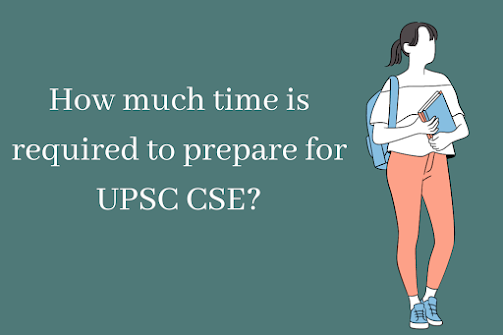First of all, let us consider the factors that affect your IAS preparation time:
The UPSC Exam Syllabus
The UPSC curriculum is comparable to a vast ocean. It covers a wide range of topics across its entirety. Additionally, the inclusion of a section on current events in the syllabus ensures that it will continue to be challenging. Examine the UPSC curriculum in the article that was linked.
UPSC Exam Format
In addition to the topics that will be covered on the exam, the format is a lengthy one that will take place over the course of almost an entire year. This examination is broken down into three stages, and at each stage, a certain number of candidates will be eliminated. The following are the three stages of the UPSC exam:
- The UPSC Preliminary examination consists of two objective papers and is held in June and August.
- The UPSC Mains examination consists of nine descriptive papers and is held in October and December.
- The UPSC Personality Test is the UPSC Board Interview, which typically takes place in March, April, or May.
The Competition
To say that competition in the civil services exam is intense and enormous would not be an overstatement. Each year, the preliminary examination for the IAS is taken by tens of thousands of hopefuls. At the conclusion of the process, approximately one thousand candidates are chosen to move on to the next stage of the selection process. And if you desire for the top-ranked services such as the IAS and the IFS, the competition is even greater because you have to secure a pretty high rank for these services. This makes the IAS and the IFS even more difficult to obtain. The United States Public Service Commission (UPSC) civil services exam is not like other exams, where you can study hard for a couple of months and get the result you want. To come out on top of your competition, which may include those who have graduated from prestigious educational institutions such as the IITs and the IIMs, you will need to go the extra mile.
Must Read: Best 7 Ways to Make Notes for UPSC Preparation.
Need for Regular Revision and Practice
When you think about how extensive the material on the IAS syllabus is, you might feel anxious about whether or not you will remember everything that you read during the exam. Because of this, reviewing material is going to be extremely important for the UPSC exam. Only through consistent review will you be able to retain at least 85 percent of everything you put in the effort to learn. Along with consistent review, you should also practice taking simulated exams. Taking practice exams will not only help you gain speed and improve your writing skills, but will also give you a feel for the actual exam.
How much time is required to prepare for IAS Exam(UPSC)?
These are all outside influences, and everybody is subject to them in the same way. However, the amount of time necessary to study for the UPSC exam is also determined by a few factors that are internal to the candidate. Sincerity, dedication, commitment, and perseverance are some of the internal factors that contribute to success. It goes without saying that each individual's combination of these factors will produce a unique outcome. The extent to which these internal factors are at play will determine how much time is needed to prepare for the IAS exam.
To answer the question "How Much Time is Required to Prepare for the IAS Exam?" that was posed at the beginning of the article, it is safe to say that the amount of time necessary to prepare for the exam is entirely up to the individuals who are interested in taking it. Some people have reported that it took them four years to pass the test, while others claim that it only took them one.
You can reduce the amount of time it takes you to pass the IAS exam by finding the optimal balance between receiving guidance from others and challenging yourself internally.
If you are preparing for UPSC or are thinking of preparing for UPSC then gkexams.com is a good website. In which you will get questions and answers related to UPSC and GK which will take your preparation to the next level.






0 Comments